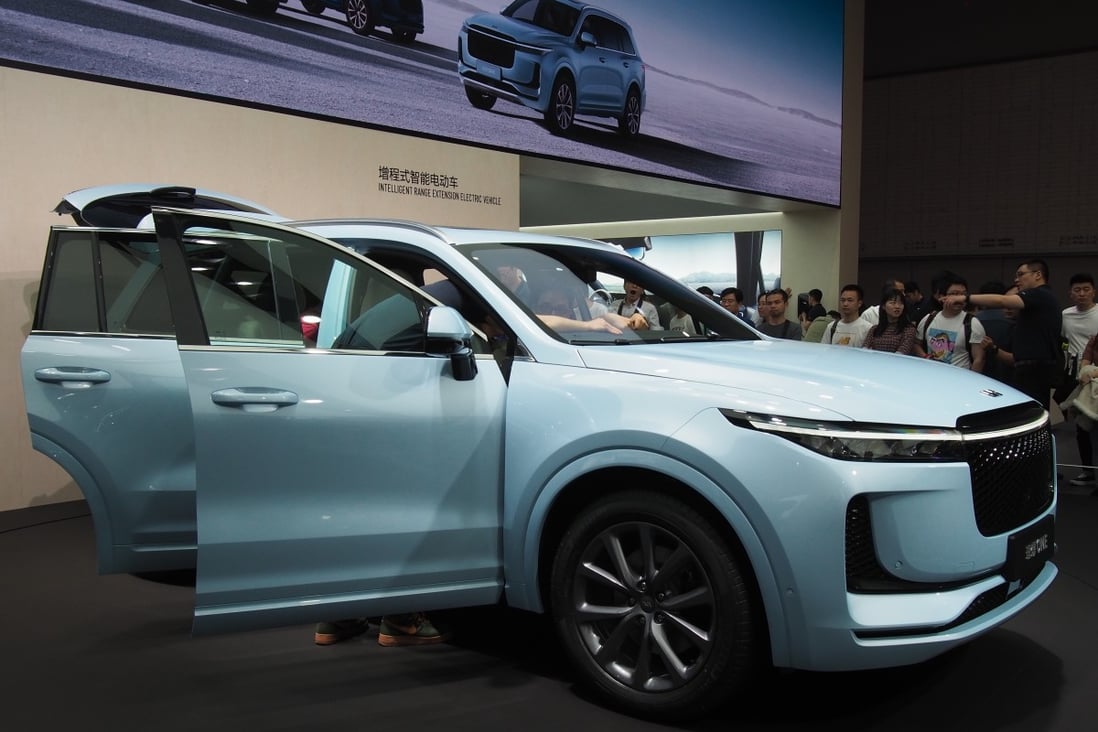
Li Auto, the Chinese electric car maker backed by online delivery giant Meituan, has set the final price of its Hong Kong IPO at HK$118 per share, according to people familiar with the deal.
This will enable it to raise HK$11.8 billion (US$1.5 billion), surpassing the US$1.1 billion it raised on the Nasdaq exchange in the US a year ago.
Li Auto set its Hong Kong IPO price at a 3.2 per cent discount to its Thursday US closing price of US$31.35, two separate sources told the South China Morning Post. Each of its American depositary shares (ADS) represents two ordinary shares.
The Beijing-based start-up is issuing 100 million shares to investors, with an over-allotment option to sell up to 15 million more if there is strong enough demand. The retail portion of the offering, which closed to investors today, represents 10 per cent of all offered shares, while the rest is for international investors.
It will trade on the main board of the Hong Kong bourse under the stock code 2015, the year the company was founded. The trading debut is scheduled for August 12.
“The final pricing is set at a narrow discount from its US closing. It is not particularly attractive and the debut trading in Hong Kong next week may not be very strong,” said Louis Tse Ming-kwong, managing director of Wealthy Securities.
“The company is still a new start-up. Hong Kong investors tend to welcome the more established firms. For those who want to invest in an electric vehicle maker, BYD looks more attractive.”
BYD, one of Li Auto’s mainland Chinese rivals, jumped to a record high of HK$295 at one point during trading on Friday, as investors consider the sector to be a safe haven from China’s regulatory crackdown on the internet and education sectors.
Li Auto is the second Chinese electric car maker to seek a dual-primary listing in Hong Kong, after its Guangzhou-based rival Xpeng completed its US$1.8 billion IPO and listed on the main board in July.
Industry observers expect US-listed NIO, the third of China’s trio of major Tesla challengers, to eventually raise funds via a Hong Kong IPO too.
A listing in Hong Kong enables US-listed Chinese firms to hedge against the risk of being delisted from the American exchanges. Legislation introduced late last year in the US seeks to delist Chinese companies that fail to pass US audit review for three consecutive years.
Li Auto and Xpeng reported record monthly deliveries for July as electric car makers position themselves to take advantage of surging sales in China.
Still, investors in Li Auto’s IPO would have to weigh the downside that the company is yet to make a profit.
“We have not been profitable since our inception. We may not generate sufficient revenues or [we may] continue to incur substantial losses for a number of reasons, including lack of demand for our vehicles [and] increasing competition,” the company said in its prospectus.
For the three months ended March, Li Auto’s net loss worsened to 360 million yuan (US$54.9 million), from 77.1 million yuan in the same period a year ago. Its net loss for the full year of 2020 was 151.7 million yuan.
Li Auto plans to use the net proceeds from its IPO on research and development which includes fast-charging and autonomous driving technologies, as well as expanding its retail stores and marketing.
Goldman Sachs and CICC are the joint sponsors of the deal, while UBS is the financial advisor.







